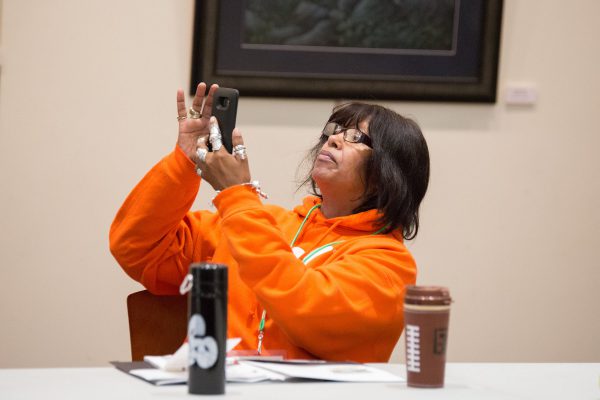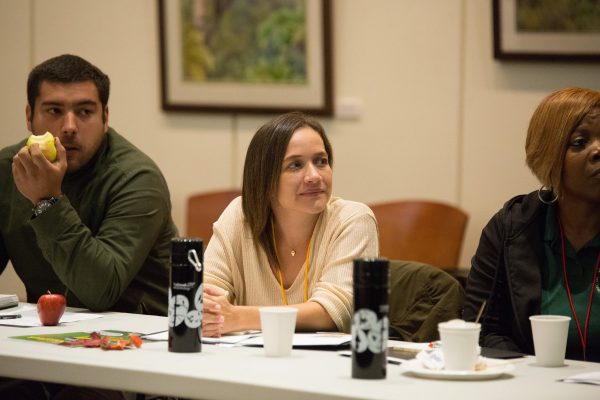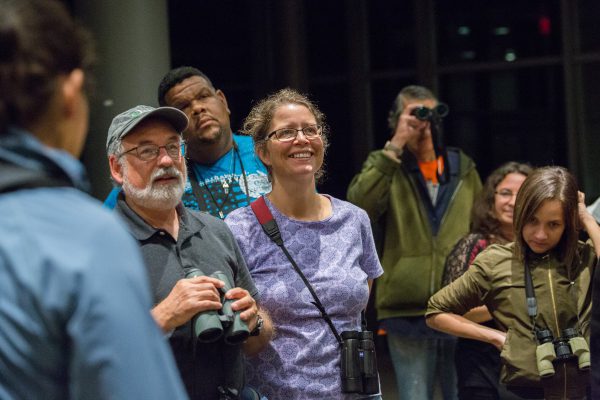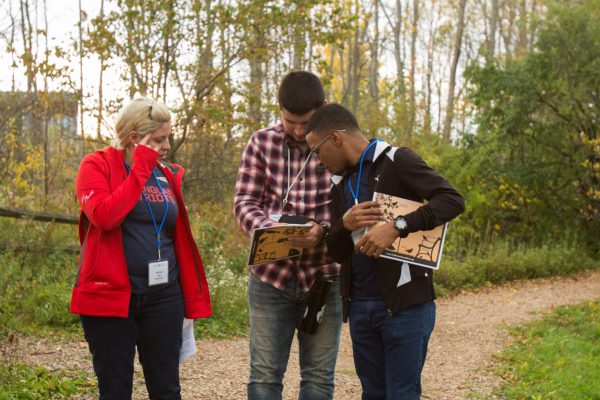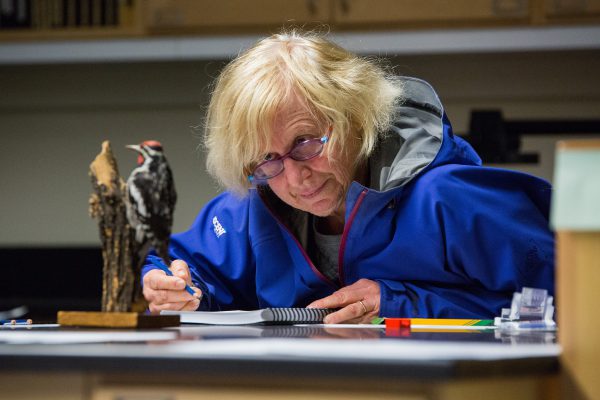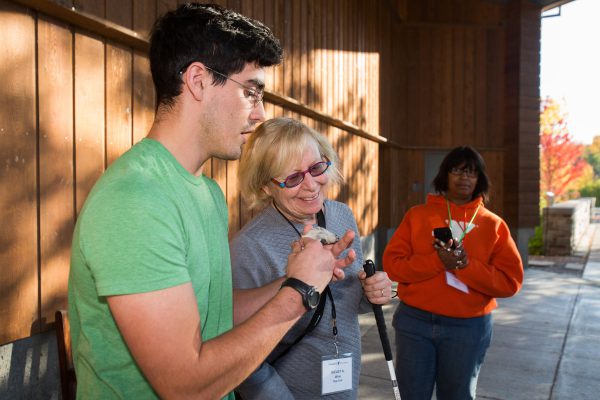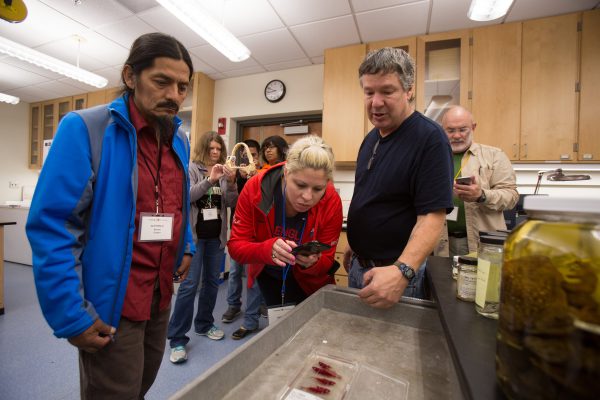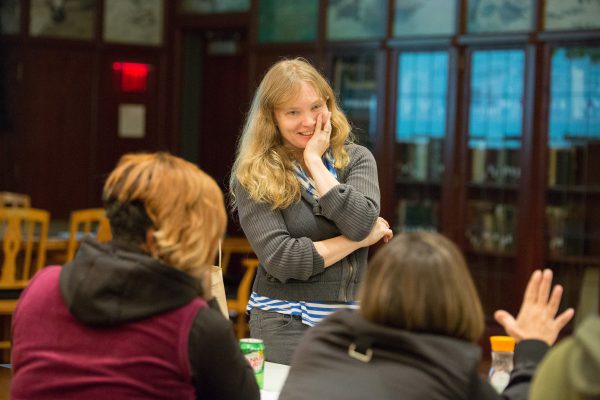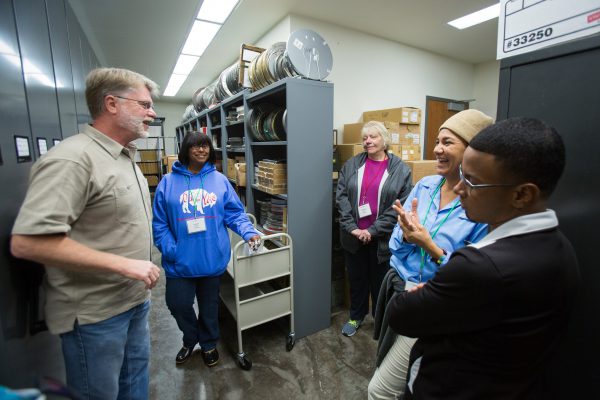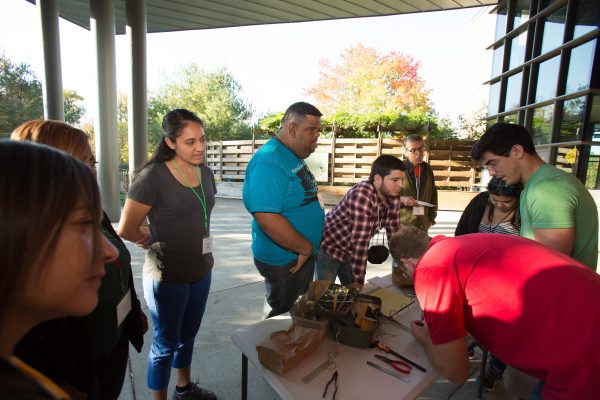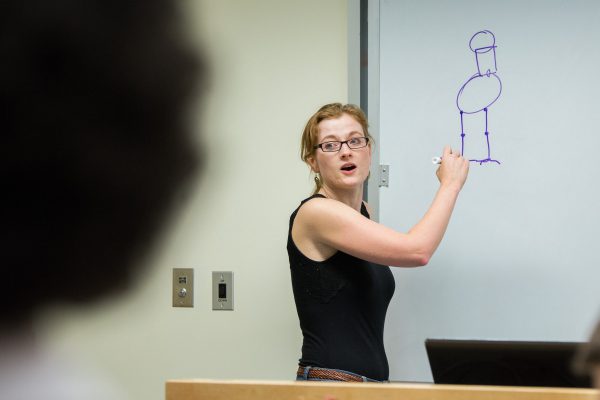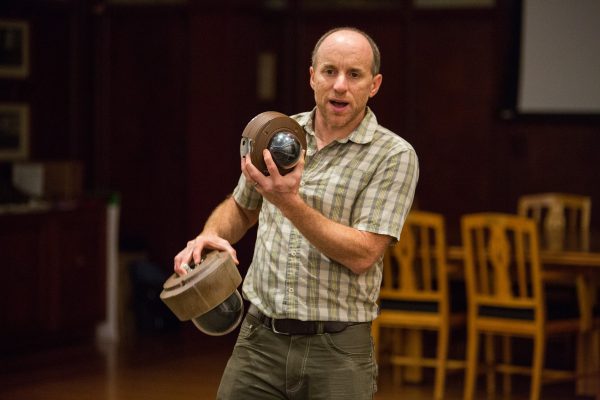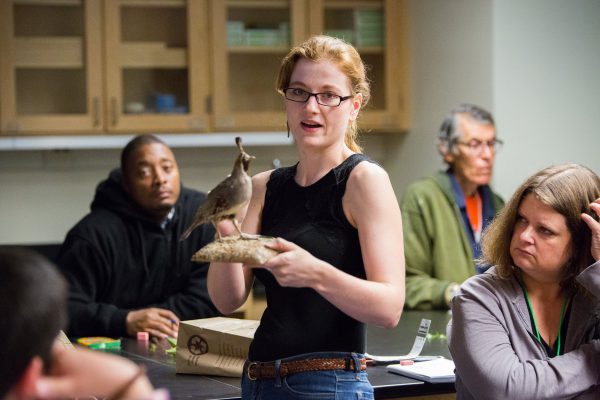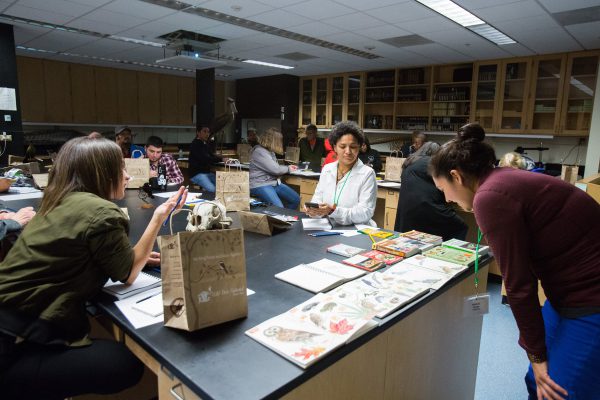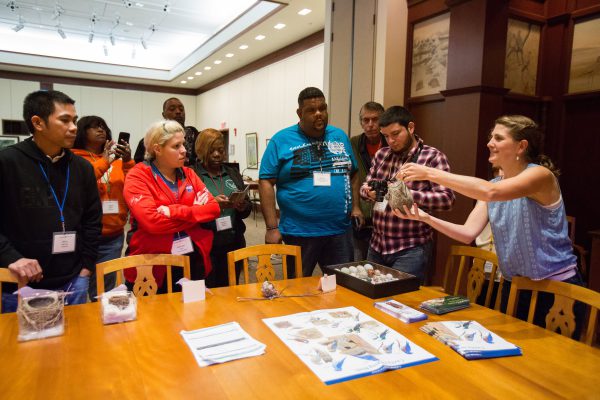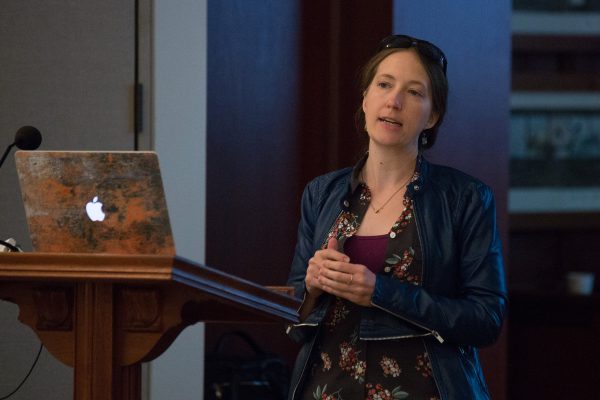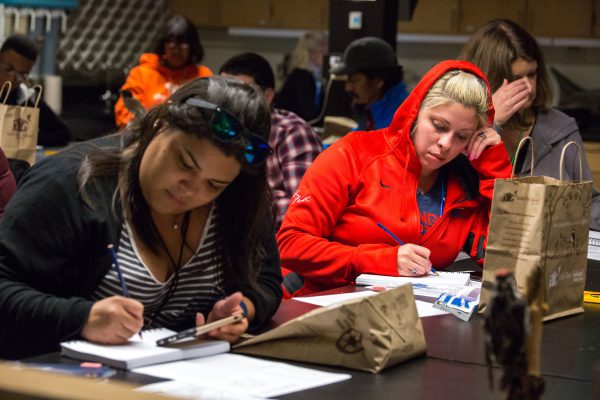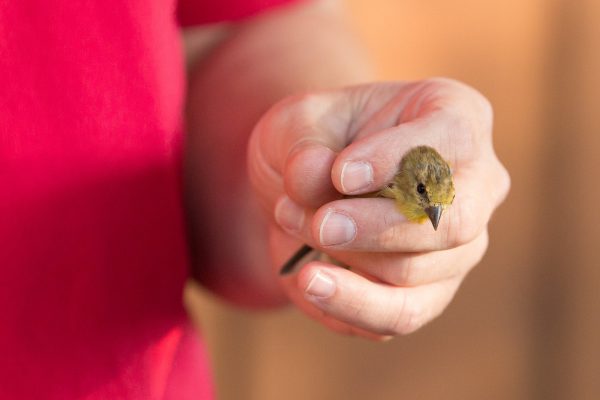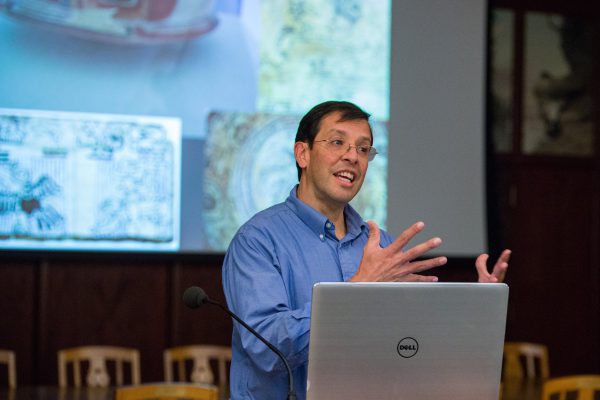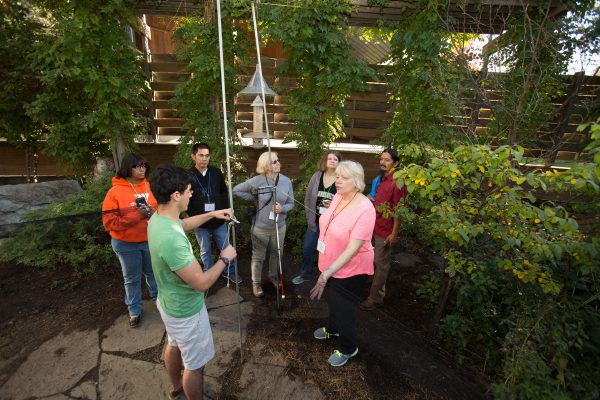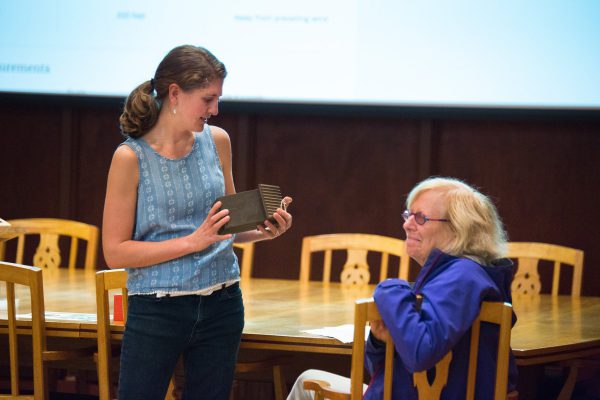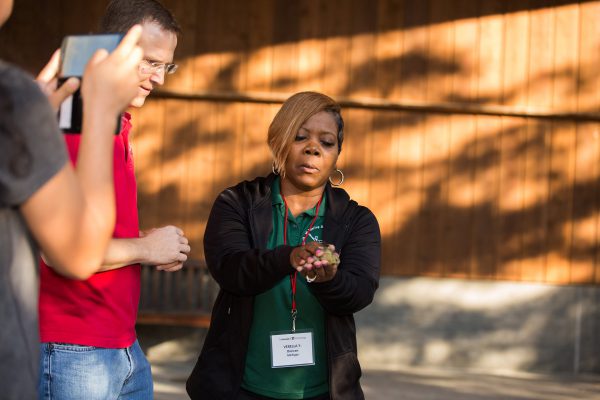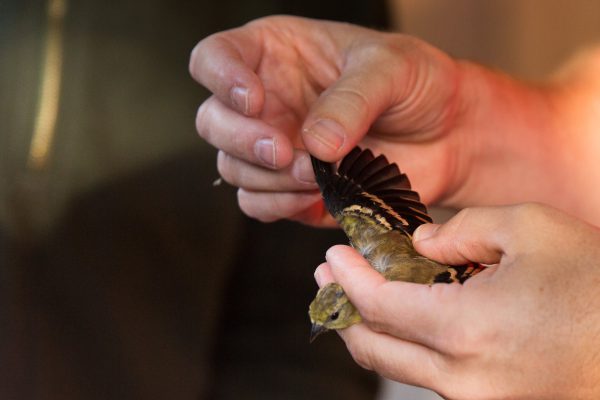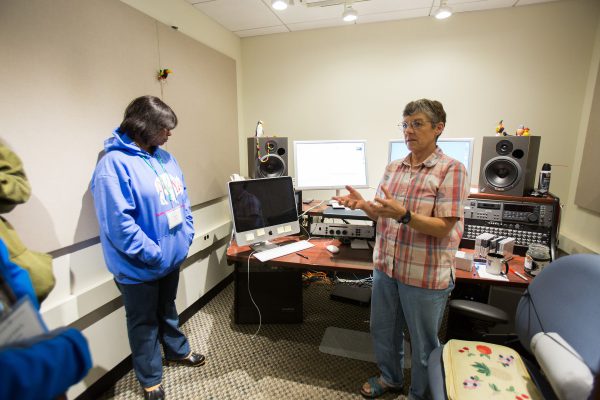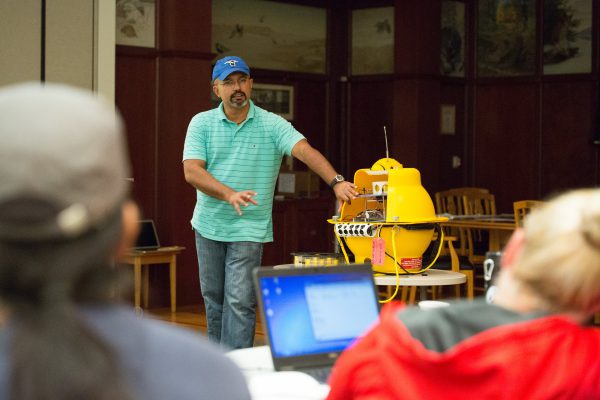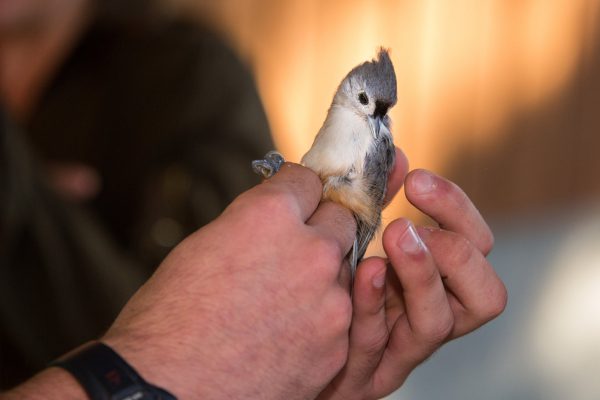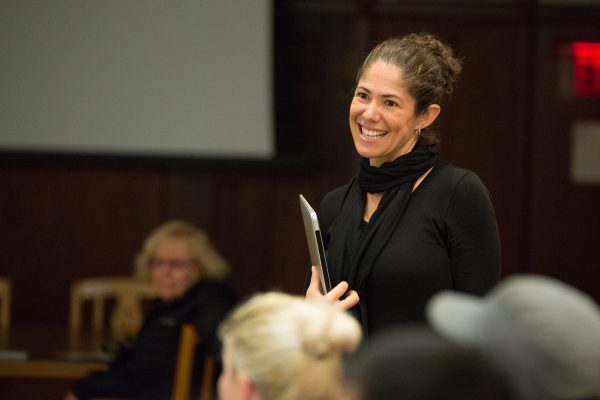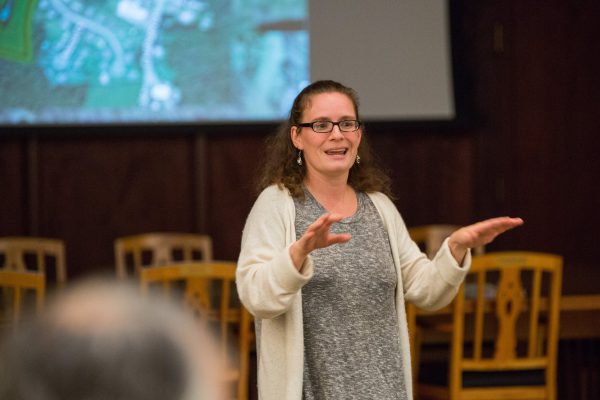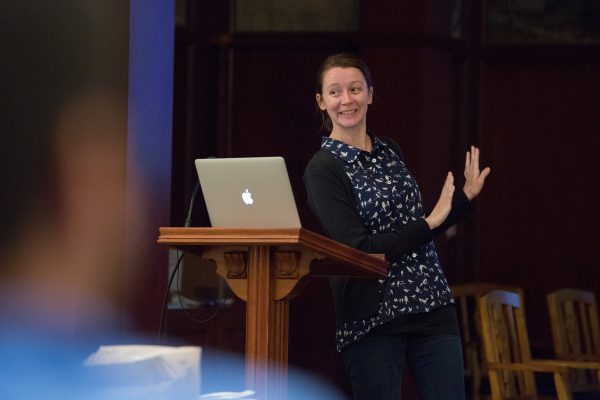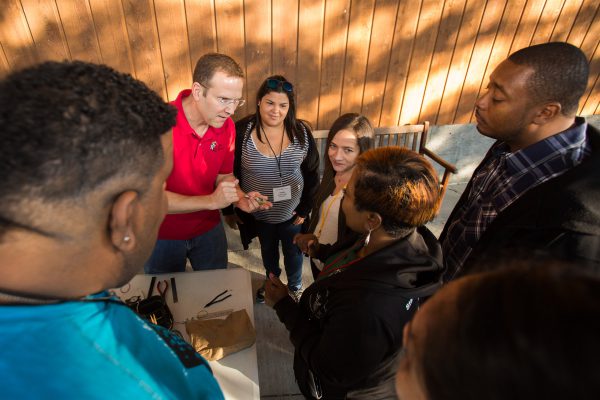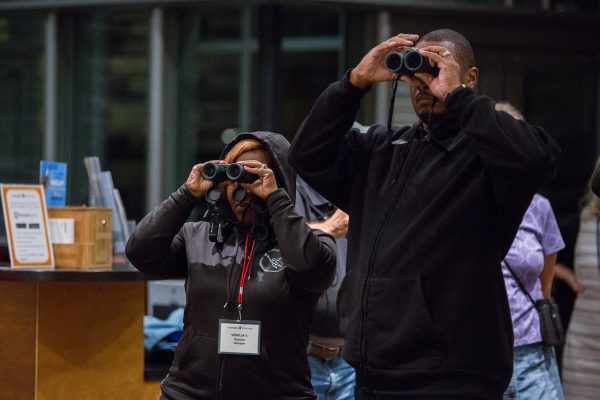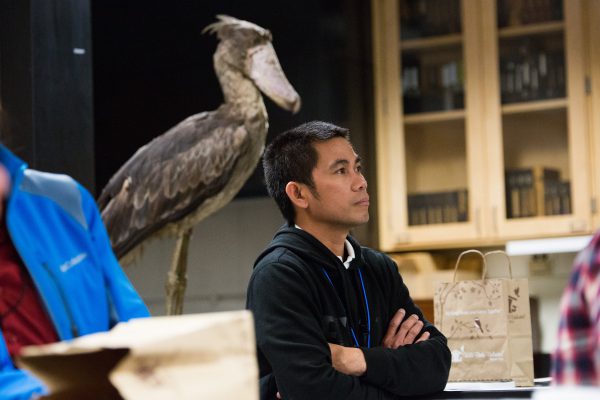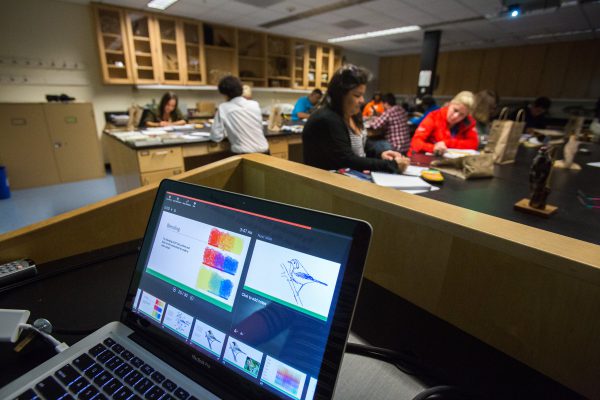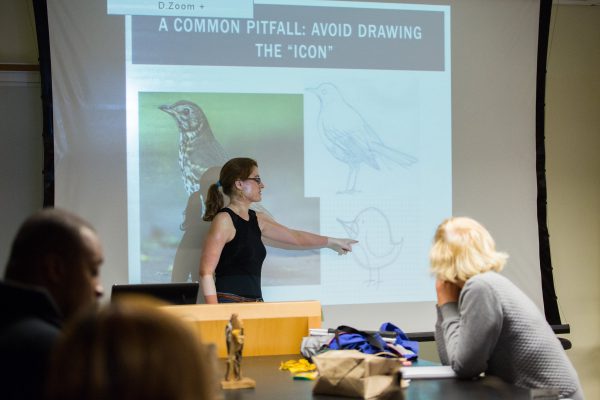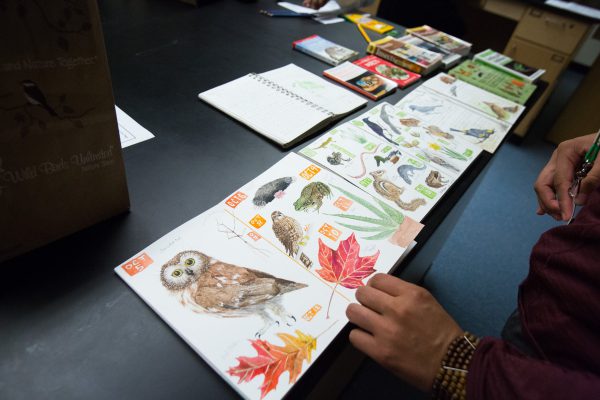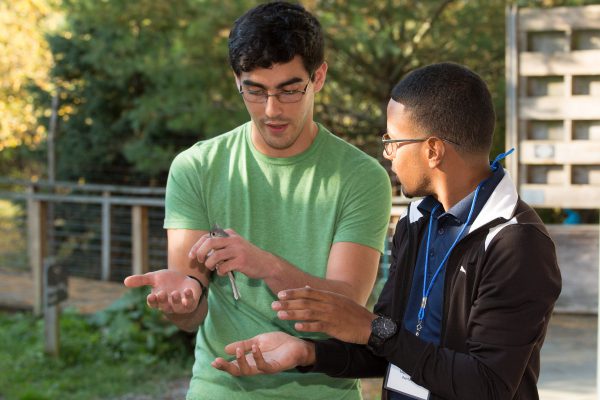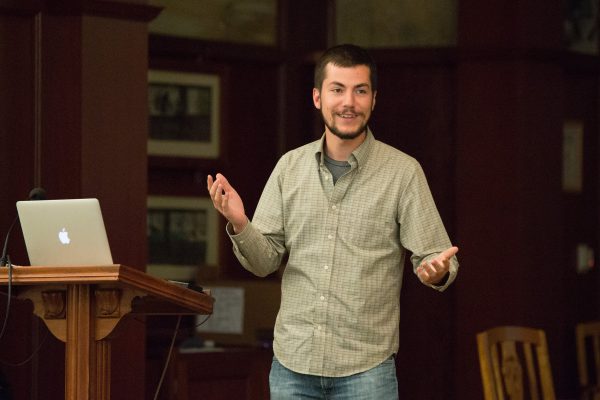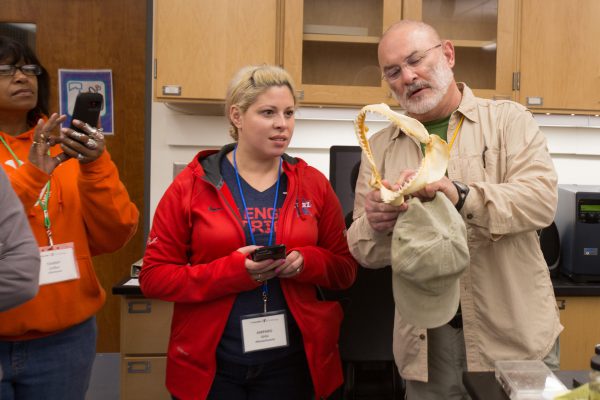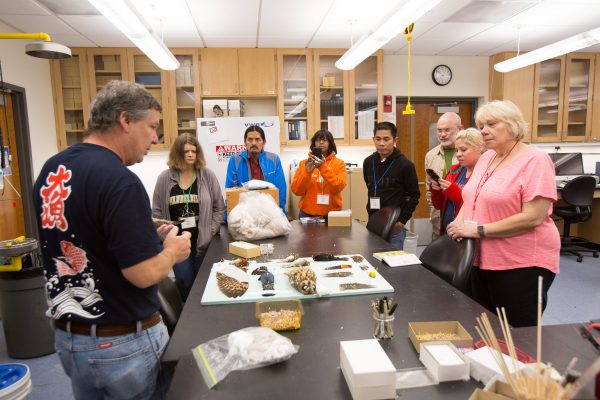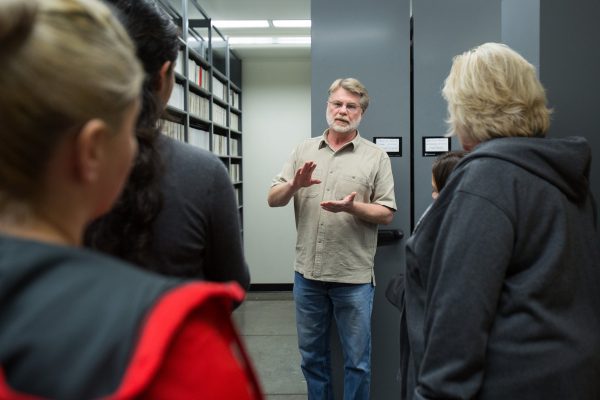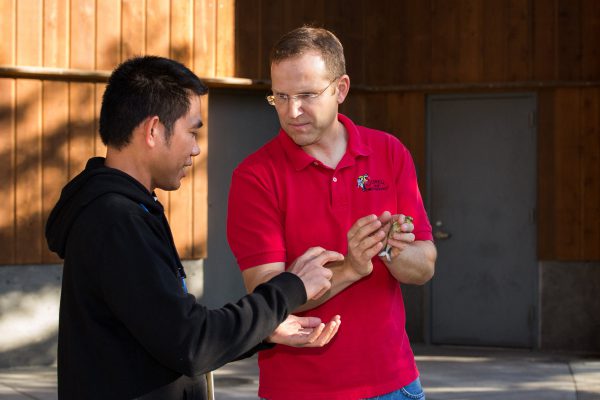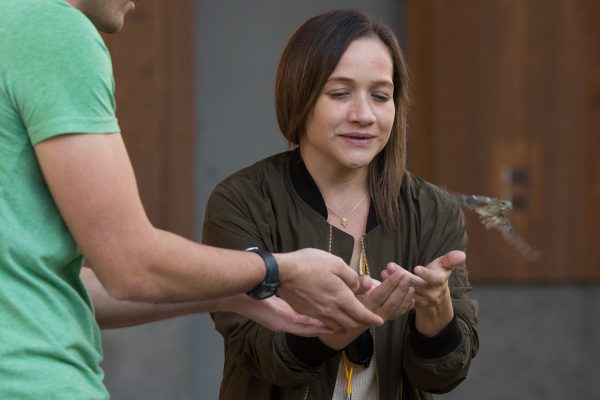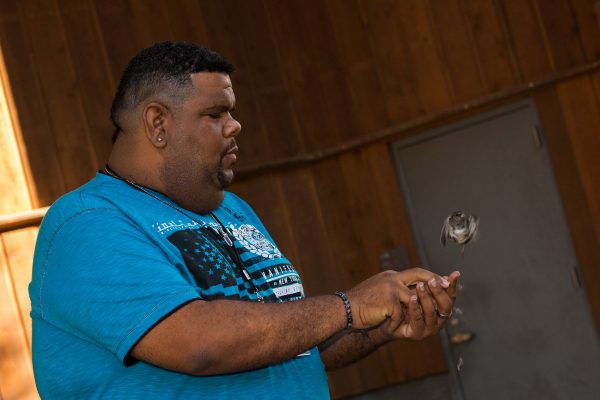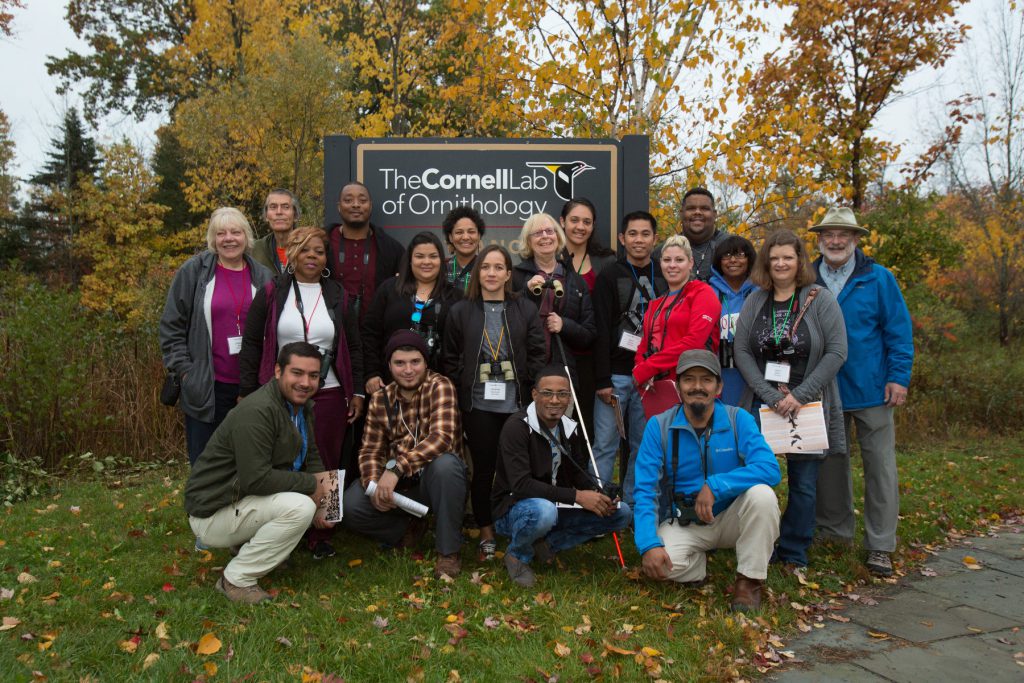 Photo ©
Marilu Lopez Fretts
Photo ©
Marilu Lopez Fretts
On October 18 and 19, we hosted 18 community leaders from across the United States at our 2016 Community Leaders Workshop here at the Cornell Lab of Ornithology. This workshop was for community advocates and grassroots leaders who wanted to learn about citizen science, engaging communities in conservation through the arts, bird watching, greening and stewardship, and paths to higher education for low income youth.
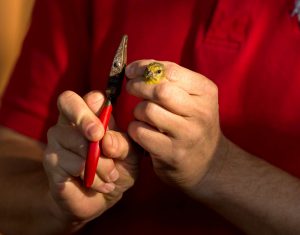
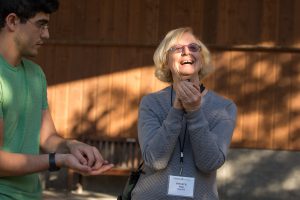
Charles Dardia, collections manager for the Cornell University Museum of Vertebrates, gave participants a tour that included dozens of specimens of birds, fish, reptiles, amphibians, and even a few mammals. The participants became familiar with some of the preservation techniques used to keep specimens in good condition and were able to see the effects that years of storage can have on feathers and their coloration.
Participants learned about cutting-edge research and data collection methods from the Macaulay Library’s multimedia collections specialist, Martha Fischer, and collections development curator Greg Budney. They also explored sound with Ashik Rahaman, a research analyst with the Bioacoustics Research Program, using a computer program developed at the Lab called “Raven Lite 2.0.”
Jennifer Shirk, director for field development for Citizen Science Association, gave a fabulous presentation on citizen science in which she explained how each of us can have in impact in our own communities by participating in these programs, such as the Lab’s Project FeederWatch, NestWatch, Celebrate Urban Birds, and the Habitat Network.
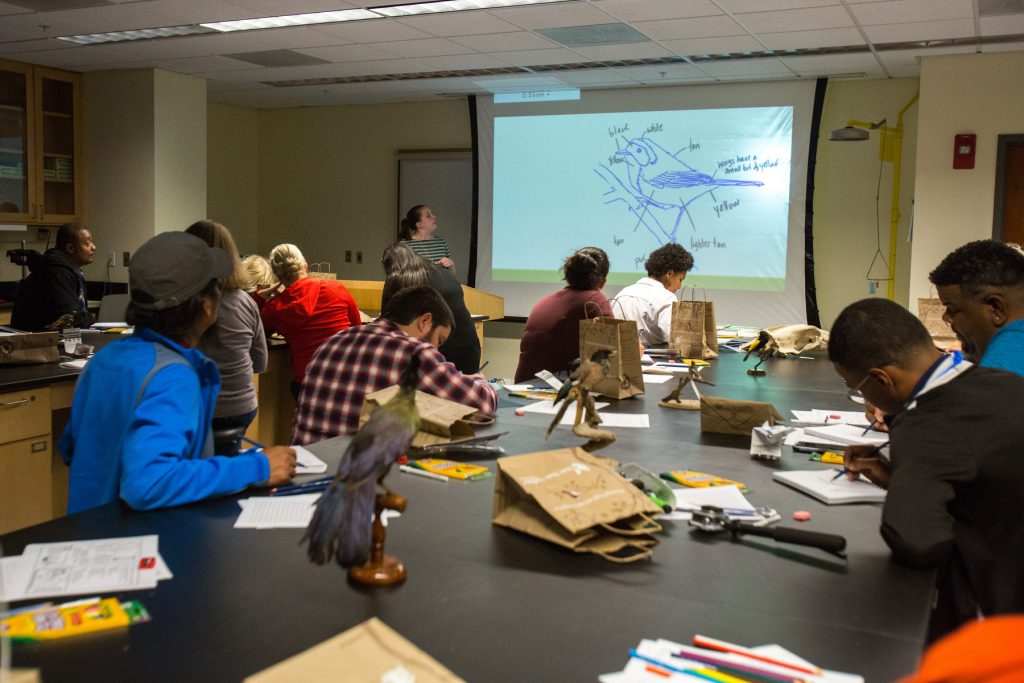
Participants peeked into the secret lives of nesting birds captured live over the Lab’s Bird Cams and learned about the power of eBird across the globe. They also explored Merlin, a bird identification app. There was also time to learn about Bird Academy, a website with many interactive resources used to teach bird biology and bird watching techniques.
Participants also heard from two conservation-science experts who work in Latin America: Eduardo Iñigo-Elías and Viviana Ruiz Gutierrez. Many birds that breed in North American migrate to Central and South America for the winter, so it’s important to focus on conservation in both regions.
Staff at the Cornell Lab were enormously thankful that each of the participating community leaders shared their deep knowledge about community engagement and discussed their action plans for helping people to become more aware of birds and nature.
Overall, this year’s Community Leader Workshop was a great success and was made possible thanks to funding from the College of Agriculture and Life Sciences and the Thomas Cade Foundation.
Check out these cool pictures from the event!!
Community Leaders Workshop 2016 from Celebrate Urban Birds on Vimeo.
Article written by Laura Pineda-Bermúdez
